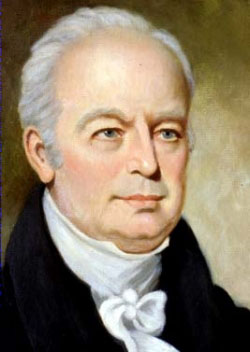Much is made about a letter from John Jay of New York to George Washington during the Convention that drew up the Constitution of the United States, and exactly what Jay meant by “natural born citizen”. It may well be that his letter arrived in time for the convention’s deliberation (although it was never mentioned in the debate) and it may well be that the words “natural born citizen” in the Constitution were taken from it, but when it comes to original intent, it doesn’t matter what John Jay meant, because John Jay was not a delegate to the Constitutional Convention, he had no vote nor did he have any part in the debate. All the input he had to the process was the words themselves in his letter, not even an explanation of what he meant beyond someone who was not a “foreigner”.
Let’s focus on someone, who was a delegate to the Constitutional Convention, John Rutledge of South Carolina. Rutledge served as the Chief Judge of South Carolina (as well as its governor and as a justice of the US Supreme Court). Having received his legal education in London, he was a formidable presence in the court room (reportedly having lost only one case). John Rutledge was the Chairman of the Committee of Detail, the committee charged with drafting the Constitution draft that the delegates debated. What did the laws of his own state of South Carolina, of which he was certainly familiar, say about citizenship?
In 1712 the [General Assembly of the colony of South Carolina] reenacted certain English laws and among them the one of William III providing that a natural born subject might inherit estates even though his father or mother or the person he inherited from was an alien. This merely strengthened the rights of the natural born but did not change naturalization Its main interest lies in the fact that the assembly was in the habit of accepting English laws bodily.
From this we see that natural born subjects in South Carolina could have an alien parent.




